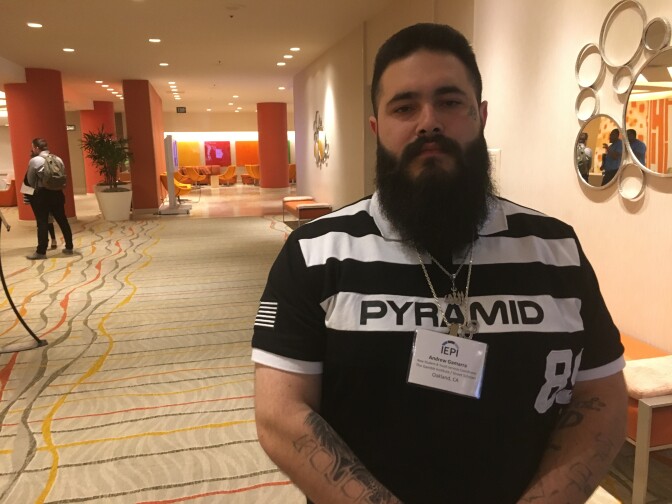For the last couple of years, staff at Glendale Community College has taken an ad hoc approach to helping students who enrolled after serving prison sentences.
“Right now we are informally supporting them through my colleagues and I, who provide mentorship, helping them pick classes, helping them apply to college,” said Ziza Delgado, an adjunct faculty member at the campus and the co-founder of the Restorative Justice Center.
But Delgado and her colleagues have major expansion plans for the fall. They’ve applied for a multimillion-dollar grant from the California Community College Chancellor’s Office to hire more than half a dozen people, including counselors and outreach workers to identify formerly incarcerated students and to acquire office space to house these services.
Formerly incarcerated students share some of the same struggles as many other students: high college costs and balancing work with school, but some of their challenges are unique. They often need to adapt from a regimented life behind bars to classroom environments where communication and collaboration is important. And they often fear revealing their challenges because of stigmatization.
“This community is completely disposable to many people,” Delgado said.
Delgado's campus is one of a growing number of Southern California community colleges trying to reap the multiple benefits of creating support programs for this student population.
“Education is one of the few interventions that we know for certain leads to positive outcomes and reduced recidivism,” said Debbie Mukamal, Executive Director of Stanford University’s Criminal Justice Center.
The growth, she said, is due to an increased focus in recent years on the causes and ways to lower this country’s high rate of incarceration.
“Those offenders who then get transformed into college students and college graduates become role models for their children and they can [help] those children to make different and better decisions,” Mukamal said.
She said there are several reasons this growth is happening at community colleges: the campuses don’t have academic entry requirements like universities, and the mix of short term certificate classes and longer degree programs provide options for these students.
A recent survey she worked on found that 78 percent of California community colleges either have or, like Glendale, are considering starting some kind of support programs for formerly incarcerated students.
Mukamal helped organize a conference in Irvine last week that gathered college presidents, faculty, staff for non-profits that work on the issue and formerly incarcerated students.
“I’ve been gangs since a very young age. In my neighborhood going to jail wasn’t something that was frowned upon, it was actually a rite of passage,” said Andrew Gamarra, who’s now a student at Merritt College in Oakland.
His campus’ support group for formerly incarcerated students helped him develop the skills to become a good student. He’s now in his second year and works with a non-profit group that helps other people who have spent time in prison and want to take college classes.
“It’s been my source of atonement for my soul and for the things that I did," Gamarra said. "I haven’t always been the greatest individual. My past led me to do things that I’m not proud of and this is, on a daily basis, my way to give back for the harm that I caused in my community and personally in my life."









